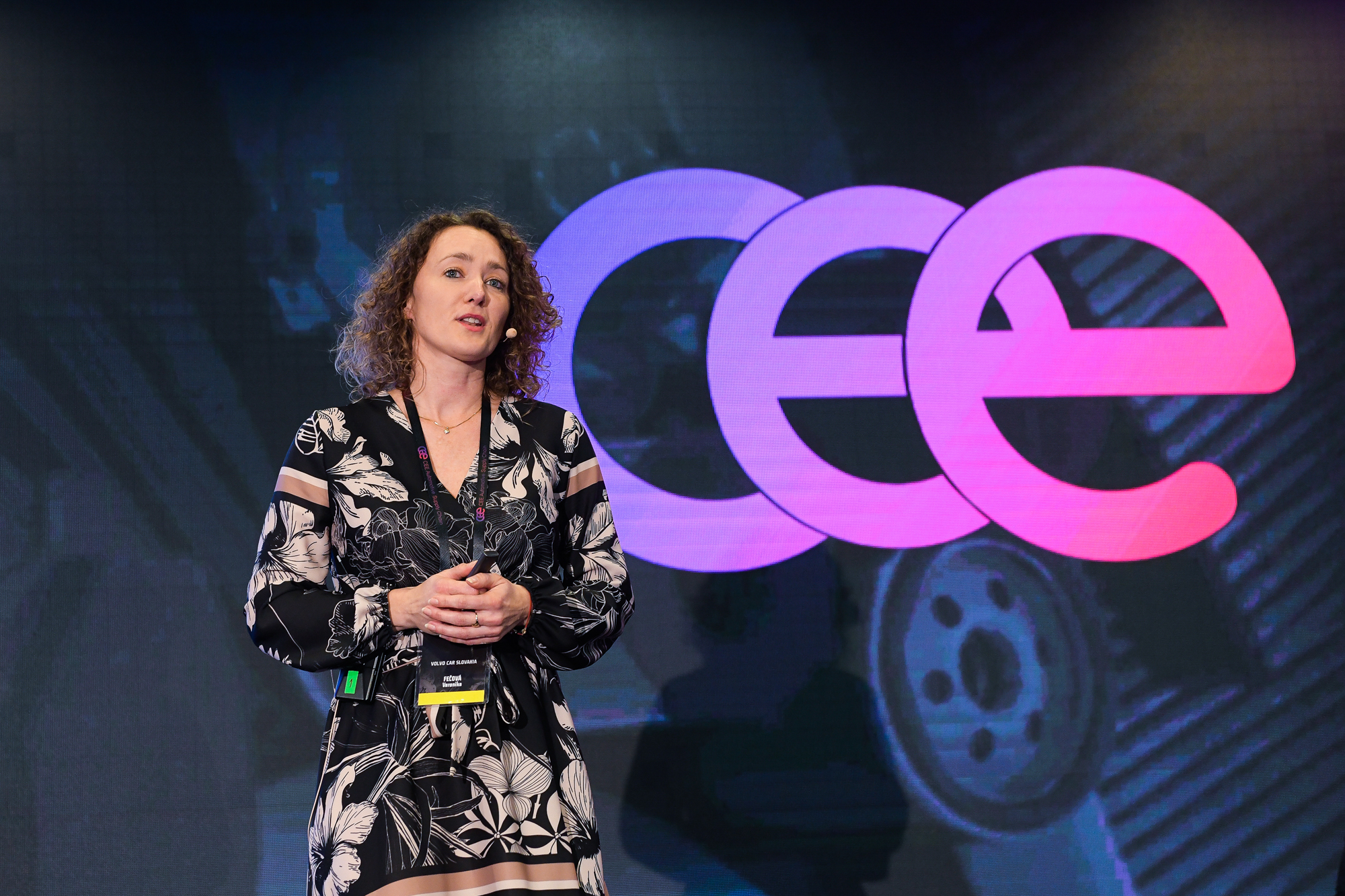The European Parliament elections are almost two months away. Business representatives, many politicians and the part of the public that is interested in European affairs agree that the next Parliament will be a bit different.Most also agree that itshould be different, that the legislation that will be produced or finalised or amended over the next five years should be more in line with the desire to maintain Europe’s competitiveness when formulating climate targets. What standards and regulations are ultimately adopted will depend to a large extent on the new MEPs and the overall balance of power in the European Parliament.
What interests will the Czech MEPs defend?
We have contacted the leaders of political parties and movements that would achieve at least a three percent gain in the parliamentary elections this February (based on a survey by the Kantar research agency) and we present the statements of all ten. ODS is going to the elections together with KDU-ČSL and TOP 09, with ODS superleader Alexandr Vondra leading the list. However, we also contacted the leaders of the other two parties, who will most likely also sit in the next parliament and whose positions may not be identical to those of ODS. In the case of the Mayors and Independents movement, we contacted both leaders – Danuša Nerudová and Jan Farský – who were mentioned at the time (early March). The answer came from the latter.
We asked:
What is your position on the set of European Green Deal and Fit for 55 initiatives, specifically the targets that relate to the automotive industry? Should the European Union’s actions in this area be reconsidered over the next five years? If so, what specifically would you recommend to be adjusted and in what direction?

Klára Dostálová | Leader of the ANO 2011 candidate
We do not consider the proposals under the Fit for55 banner to be balanced in terms of their impact on the automotive industry, whether they were the original proposals of the European Commission or the final, negotiated texts. As adopted, they represent a significant threat to the current and future competitiveness of European industry in general, including car manufacturing. Some of the proposals do not correspond to current technical and technological possibilities. Others limit the scope for future growth and innovation. Others cause an increase in the price of inputs, particularly energy or raw materials. On balance, therefore, we consider them to be negative.
We perceive the most problematic proposals as those that addressCO2emissions from cars, commercial vehicles, but also trucks and buses. In particular, there is a provision that bans the sale of new vehicles with internal combustion engines in the EU after 2035. There are also, for example, the related Euro 7 emissions standard, or proposals to extend the emission allowance system to the transport and household sectors.
Our intention for the next mandate of the European Parliament is to work as hard as we can to repeal, or at least fundamentally change, regulation in these areas. Their aim should be to set up legislation that takes full account of the specifics of countries such as the Czech Republic, takes account of the needs of European industry and strengthens its competitiveness.
The ban on the sale of cars with internal combustion engines should be lifted. This regulation should take account of technological developments in the field of fuels other than conventional fossil fuels, such as synthetic fuels or biofuels. With Euro 7, we are far from convinced that we need such standards at the moment. It will only bring new requirements, which will again be reflected in the price of cars and their individual components. In general, we would like the next European Parliament, but also the European Commission, to be more willing to listen to the needs of industry. We need fewer climate-related, ideologically determined proposals, but, on the contrary, more pragmatic economic policy, support and orientation towards the performance of European, and therefore Czech, industry.
 Alexandr Vondra (ODS) | leader of the joint candidate of the Civic Democratic Party, KDU-ČSL and TOP 09
Alexandr Vondra (ODS) | leader of the joint candidate of the Civic Democratic Party, KDU-ČSL and TOP 09
It is clear that a rethink or even abandonment of a number of commitments is necessary to preserve European industry and any basic social reconciliation in Europe. With the previous composition of the European Parliament, we achieved results rather sporadically, when we managed to blunt the Euro 7 standard that came from the pen of the European Commission. In most cases, however, the Parliament has made the Commission’s proposals even more radical.
I firmly believe that the Parliament that emerges from the June elections will be a little more numerous. For example, the ban on the sale of new cars with combustion engines or the regulation onCO2 emissions from lorries and buses would deserve revision.

Marcel Kolaja (Pirates) | Candidate leader Czech Pirate Party
The global automotive industry is undergoing a major transformation. The Pirates are not turning a blind eye to this, nor are they putting on rose-tinted glasses. That is why we are glad that Europe is aware of this transformation and is taking China’s rapid entry into the field of electric cars seriously. If we do not want the European car industry to be completely overtaken, we must keep up. I consider most of the objectives relating to the automotive industry, such as the plan to build a network of charging stations or the transition to emission-free vehicles, to be correct.
We are also working on legislation that is essential for the successful development of the European automotive industry, such as the Critical Raw Materials Act. This is to ensure the availability of the materials needed to produce electric cars. On the other hand, I consider the Euro 7 standard as approved to be unfortunate, because its positive impact on the environment will be negligible, even though it brings new obligations for car manufacturers.
However, I am sceptical about reassessing the targets. The manufacturers have already adapted their plans to the current legislation, and it would be unfair to them to create confusion now. I consider the ongoing investigation by the European Commission into whether China is dumping electric cars into Europe to be extremely important. Unfair dumping distorts the market and unfairly eliminates competition. If the suspicions are confirmed, this could be a real threat to the European car industry and severe action will have to be taken.

Petr Mach (SPD) | leader of the Freedom and Direct Democracy (SPD)-Trikolora candidate list
The SPD-Trikolora coalition is going into the Euro elections with the aim of reversing the Green Deal. We oppose both the emissions trading system and the de facto ban on the sale of cars with internal combustion engines. Together with like-minded parties from other countries, we plan to push through a resolution to repeal the Green Deal and will only support a European Commission that commits to repealing the Green Deal. We believe that the Green Deal limits the competitiveness of European industry and, in particular, would have drastic consequences for the Czech economy, which is largely based on car production. Without a repeal of the Green Deal, we would face a long-term economic slump.
We do not oppose electric cars a priori, but they must earn their position in fair competition and not through advantages and bans. Moreover, we believe that the Green Deal will only reduceCO2 emissions in Europe, but not globally. If Europe does not demand oil, the rest of the world will be happy to buy it, and global emissions, and therefore the climate, will not be affected. We consider the abolition of the Green Deal to be realistic. The faction of Eurosceptic parties is expected to grow significantly stronger and, together with others such as Fidesz in Hungary and the Polish Law and Justice party, we have a high chance of finding a majority for a complete repeal of the Green Deal.

Jan Farský (STAN) | leader of the Mayors and Independents candidate list
The aim of the agreements is clear and unquestionable, but we can discuss the speed of their implementation. The Green Deal was approved in the run-up to the covid, before Putin’s aggression against Ukraine and the resulting energy crisis. It therefore makes sense to reflect and continually evaluate so that the EU remains competitive and prosperous even with the Green Deal.

Luděk Niedermayer (TOP 09) | on the joint candidate list of the Civic Democratic Party, KDU-ČSL and TOP 09
Targets, requirements or regulations for all sectors of the economy, based on the need to reduce greenhouse gas emissions, are indeed demanding. But the question is whether the rapid drive to reduce emissions (and also to protect health and nature, although that is a slightly different topic) has an alternative. Everyone around us can see, especially recently, how big changes are taking place. And so far we are only ‘seeing’ the effects of emissions that entered the atmosphere years ago. The data is not only disheartening, but mostly relentless.
As part of a global agreement to reduce emissions (the Paris Agreement), the European Union has agreed to reduce emissions by 55 per cent by 2030 compared to 1990 levels and to a target of emission neutrality by 2050. Incidentally, most countries have adopted similar targets. This target has become European law, so it is not “just” a political declaration. The Commission has proposed, and national governments and MEPs have agreed, that the EU will achieve this by reducing emissions across the economy, in industry (where the biggest drop is), transport, real estate and agriculture. This is part of the so-called Fit for 55. It is overwhelmingly approved by governments and MEPs and is coming into force.
This includes a drop in fleet car emissions to zero in 2035, which is causing a lot of emotion. It effectively means that passenger cars will (predominantly) switch to battery-powered vehicles (BEVs), which have very high energy efficiency, will use clean energy and will gradually ensure the low cost of this mobility (other clean alternatives will not allow this). This process is expected to take 15 years, which is quite a long time, but we can already see both a trend towards rapid and substantial innovation and a decline in prices.
As usual, the Fit for 55 package contains revision clauses that allow the European Commission to propose adjustments to approved rules, regulations or targets. But it has two conditions. The first is that if the changes allow for higher greenhouse gas emissions in one sector, they must be offset by reductions elsewhere. Finding a sector where a “substantial increase” in emissions reductions can be made is not easy. The second is that even if the Commission proposes a change, it must be approved by Member States (by qualified majority) and Parliament.Which is not at all obvious. So the promises of some politicians to “change the rules” are somewhat bold.
The possibility of a substantial change in the rules has a number of pitfalls. One way to facilitate the transformation of companies is to set clear and, above all, stable business conditions. Substantially changing what has already been agreed devalues this ‘advantage’. It “rewards” companies that have not prepared for change and “punishes” those responsible. Moreover, opening up the possibility of selling more cars with internal combustion engines for longer would burden non-premium manufacturers in particular with the need to invest in the development of both technologies. Moreover, the question at stake is whether weakening the emphasis on BEVs in a situation where the European automotive industry has not only fallen behind the US Tesla in this segment, but is also apparently threatened by high-quality Chinese competition, is exactly the right policy.
There is no doubt that today’s phase of the BEV transition is extremely complex. The automotive industry has made huge investments, sales support from EU countries is small and unstable, the infrastructure is growing slowly and, in addition, downward pressure on prices is starting to take off in the market. However, the option offered to ‘dilute’ the transition to energy and emission efficient battery personal mobility by ‘promising to revise targets’ is highly questionable to say the least. Much more rational seems to me to be a demand for some stable support for BEV sales, ideally across the EU(as in the US). A system of constantly changing, more than two dozen supports is chaotic, expensive and inefficient. And by the way, given that the burning of fossil fuels (including in cars) brings with it considerable social damage which ‘nobody pays for’ (because excise duties do not cover it, it is a so-called externality), from an economic point of view, the tax advantage for BEVs is not a ‘market damage’ but rather a market straightening.

Lubomír Zaorálek (SOCDEM) | Leader of the Social Democratic Party candidate list
I am not one of those who make false promises to stop the Green Deal. The intention is essentially correct. We want to live in a healthy environment, we want to mitigate the effects of climate change and, finally, we are slowly running out of coal. However, a reassessment and some correction of the EU’s plans is necessary.
We need to give a human face and a social dimension to the whole green policy, because without public support it would end in failure. We need to think about the self-sufficiency of our industry. It would be hypocrisy to import products from outside the EU, where they are not bothering with the Green Deal. Yes, we need to modernise production and reduce emissions, but at the same time we need to keep strategic production and jobs in Europe. After all, we see today how, for security reasons too, it is necessary to have our own steel production, for example.
I do not like the way in which the Czech Government is supporting the purchase of electric cars. This is not the fault of the EU, but purely the fault of our government. The money for the 1.65 billion goes to people who do not even own a car themselves. However, only entrepreneurs can benefit from the programme, and a large part of the subsidy ends up in the banks, because it is conditional on the purchase being made on credit.

Filip Turek | leader of the joint candidate of the Oath civic movement and the Motorists for Ourselves party
To make it clear what we are talking about and what the Fit for 55 package represents. On the one hand, it seeks to reduceCO2 emissions by 55 per cent compared with 1990, but on the other hand, it introduces a number of drastic measures that people do not know much about. In short, it will bring about a significant tightening up of the emissions trading system, which will now be extended to maritime transport, road transport and the abolition of free allowances for air transport. Carbon duties will be introduced, which will make the most energy-intensive areas of industry significantly more expensive, for example, the production of fertilisers, which will be another nail in the coffin of (not only) Czech agriculture and food processing, and so on.
Without the Fit for 55 package, the whole Green Deal would remain a phantasmagorical rant by environmental activists, but this (and many other measures contained in the package) are serious and concrete blows to the existing lives and prosperity of hundreds of millions of people across Europe.
It is to be a so-called green transformation, which must be resolutely rejected, because it will lead not only to the destruction of the car industry, but also to a reduction in the availability of energy, to the transformation of education into a green indoctrination of the young, to the distortion of the financial sector, where only ecological and carbon-neutral projects can be financed, but it will also affect sport, culture and de facto all areas of life in Western society. The Green Deal and Fit for 55 are an attempt to forcibly re-educate all people, an experiment from the pen of the former green EU Commissioner, Frans Timmermans, which should be rejected as a whole. If this is not possible, we must try to block as much as possible, because this policy is a policy of destruction.

Tomáš Zdechovský (KDU-ČSL) | on the joint candidate list of the Civic Democratic Party, KDU-ČSL and TOP 09
The Green Deal is a runaway train from which it is impossible to get off. The whole world agrees with the commitment to a cleaner and more sustainable planet. However, the approaches and the intensity with which this can be achieved vary. The agreed EU plan (Andrej Babiš for the Czech Republic) is to achieve a carbon-neutral Europe by 2050. But this cannot be achieved without major interventions in all sectors of European industry. The Fit for 55 package already contains specific proposals aimed at reducing emissions, and here the entire car industry is significantly affected. It has been, and still is, the showcase of European industry. However, I cannot understand why we are destroying our jewel, which is the envy of the whole world, with nonsensical proposals such as ‘the end of the production of cars with internal combustion engines after 2035’ or the ultra-strict ‘Euro 7 standard’, which, fortunately, thanks to Sasha Vondra, has been extremely softened.
Let’s reduce emissions, let’s talk about real measures, but let people drive normal cars. If electric cars are the trend, they will establish themselves on the market; we are unnecessarily distorting the whole environment in the EU with subsidies. It makes absolutely no sense to import cheap electric cars from Asia, where the carbon footprint of production is not taken into account. It is a spit in the face of the car companies, which are being stood up to by the European Commission, which is dictating stricter rules to them and which is itself allowing a flow of Chinese-subsidised electric cars into the EU.
Fortunately, the approach to many of the Green Deal measures is beginning to change. I believe that the ban on the production of cars with internal combustion engines will be reconsidered and people will be given a choice. May the best and most convenient for people type of car with the most powertrain win. In ten years’ time, development may move forward by leaps and bounds and hydrogen-powered cars, for example, may come to dominate. Then the whole strategy will shift again and we will ban electric cars because the mining of metals to make the batteries for these cars is extremely environmentally unfriendly and the work in African mines is done by children? We should therefore look at these measures pragmatically and not ideologically. I believe that, in the end, common sense will prevail.

Kateřina Konečná (KSČM) | Leader of the Communist Party of Bohemia and Moravia candidate list
My attitude towards these EU initiatives is well known. It should therefore come as no surprise when I say that I fundamentally disagree with this megalomaniacal plan, which will significantly damage our economy. If you take what has been adopted in the last five years – the end of the sale of new cars with internal combustion engines in 2035, Euro 7 – or is about to be adopted – new emission limits for heavy vehicles, you will realise that we are heading for the abyss. In contrast to these ambitious targets are the weak commitments of countries to build the necessary infrastructure and to a just transition. The Clean Vehicle Infrastructure Regulation (AFIR) has fallen far short of what is necessary and, as far as the money allocated is concerned, that too is scarce.
European manufacturers are not ready for this transition and this is already showing today, with tenders for the purchase of electric vehicle fleets being won by those from China. Europe has shot itself in the right hand and sent to its death the only sector that has managed to win in global competition. Fortunately, there are revision clauses in most of the above-mentioned documents and other parts of the Green Deal, which will be triggered most often between 2026 and 2027. That is why it is imperative to know who will sit in the European Parliament after the elections, not only in the European Parliament, but also in the seats of the Commissioners of the European Commission.
What specifically to change? First of all, a ban on the sale of new cars with internal combustion engines. The introduction of new zero-emission urban buses needs to be better scaled up and more time given to both manufacturers and the public sector. Furthermore, commitments to infrastructure building need to be strengthened. Here, more money needs to be found in the new MFF (Multiannual Financial Framework). The problem is the declining industry, the steel mills that are collapsing under the weight of more and more obligations and the rising price of emission allowances. Yes, it is true that we can import steel from Turkey and China, but if the pandemic has taught us anything, it is that relying on the world around us for basic inputs is a mistake. This, after all, also applies to production capacity in semiconductors.
—
The parties are ranked according to the results of the Kantar poll.
Contact
Next articles and interviews
Next articles and interviews
+ Show


 Alexandr Vondra (ODS) | leader of the joint candidate of the Civic Democratic Party, KDU-ČSL and TOP 09
Alexandr Vondra (ODS) | leader of the joint candidate of the Civic Democratic Party, KDU-ČSL and TOP 09















